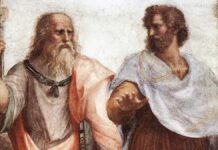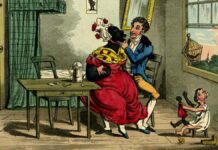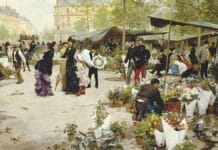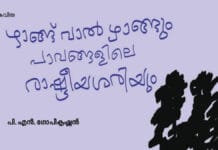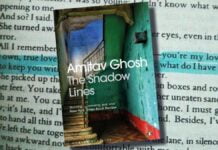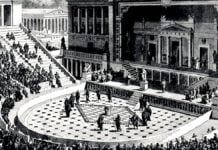T.S.Eliot’s essay Tradition and the Individual Talent (1919) is one of the most influential critical works of the 20th century. It explores the relationship between tradition and innovation in poetry and provides a framework for understanding the creative process. Eliot challenges conventional Romantic notions of artistic originality and instead presents a theory of poetic creation that emphasises continuity, objectivity, and the integration of the individual poet with a larger literary tradition.
Definition of Tradition
Eliot begins by redefining the concept of tradition. He rejects the idea of tradition as merely a blind adherence to the past or a mechanical repetition of previous works. Instead, he views tradition as a dynamic and living continuum. For Eliot, tradition involves a historical sense, which encompasses an awareness of the entire literary past and its relationship to the present.
The poet, Eliot argues, must engage with this tradition not passively but actively, reshaping and revitalising it through their work. The poet should possess a sense of “timelessness” where the past and present coalesce in the creation of new poetry. Eliot insists that a poet’s work does not exist in isolation but must be evaluated in the context of the literary tradition it enters.
Impersonality in Poetry
One of Eliot’s most provocative arguments in the essay is his theory of poetic impersonality. He argues that great poetry is not the expression of the poet’s personality or emotions but an objective and impersonal art form. The poet, Eliot asserts, must separate themselves from their work, serving as a medium through which universal truths are articulated.
Eliot uses the analogy of a chemical reaction to explain this concept. Just as a catalyst remains unchanged while facilitating a chemical reaction, the poet enables the creation of poetry without injecting their emotions into it. Instead, the poet synthesises personal experiences and universal themes to produce a work that transcends individuality.
The Process of Depersonalisation
Eliot elaborates on the process of depersonalisation, where the poet’s personal feelings and experiences are distilled into a universal form. This process involves the poet merging their subjective experiences with broader cultural and historical contexts. By doing so, the resulting poetry becomes an impersonal artefact that resonates universally rather than being confined to the poet’s perspective.
Criticism of Romantic Subjectivity
Eliot critiques the Romantic emphasis on the poet’s emotions and individuality, as seen in the works of poets like Wordsworth and Shelley. He views this focus on personal expression as limiting, arguing that true artistic greatness lies in the poet’s ability to transcend their individuality and contribute to the collective literary tradition.
Evaluation of Poetic Worth
Eliot concludes by discussing the criteria for evaluating poetry. He insists that a poem’s value should not be judged solely on its emotional impact or originality but on its ability to enrich and engage with the existing literary tradition. The best poets, according to Eliot, can integrate their individuality with tradition, creating works that are innovative and grounded in historical continuity.
Reconceptualisation of Tradition
Eliot’s redefinition of tradition is one of his most important contributions to literary theory. By viewing tradition as a dynamic and evolving continuum, Eliot challenges the idea that tradition is static or antiquated. He argues that tradition is both a resource and a responsibility, requiring poets to engage with the past critically and creatively. This perspective enriches our understanding of literary history as a dialogue between past and present rather than a linear progression.
Impersonality and Objectivity
Eliot’s theory of poetic impersonality revolutionised modernist aesthetics by rejecting the Romantic ideal of poetry as a direct expression of the poet’s emotions. His insistence on objectivity in poetry encourages a more disciplined and universal approach to poetic creation. The chemical reaction analogy underscores the poet’s importance as a facilitator rather than a dominant presence in the work, offering a new way to conceptualise the relationship between the artist and their art.
Integration of Individual and Collective
Eliot’s emphasis on the integration of individual talent with the collective literary tradition highlights the interconnectedness of artistic creation. By situating individual works within the broader context of literary history, Eliot provides a framework for understanding how new poetry simultaneously transforms and is transformed by the tradition it joins. This approach underscores the importance of cultural and historical awareness in the creative process.
Critique of Romanticism
Eliot’s critique of Romantic subjectivity is a significant intervention in literary criticism. He advocates for a more structured and intellectual approach to poetry by rejecting the emphasis on personal emotion and spontaneity. This shift from the Romantic ideal of the solitary genius to the Modernist focus on craft and discipline reflects broader cultural changes in the early 20th century.
Theoretical Foundations for Modernism
Eliot’s essay serves as a manifesto for Modernist poetry, emphasising innovation within the framework of tradition. His ideas influenced a generation of writers and critics, shaping the development of modernist aesthetics and redefining the role of the poet in society. The essay’s emphasis on historical awareness, impersonality, and intellectual rigour became hallmarks of Modernist literature.
Philosophical and Ethical Dimensions
Eliot’s essay is not merely a treatise on poetic technique; it also engages with broader philosophical and ethical questions about the nature of creativity and human expression. His insistence on the poet’s responsibility to tradition reflects a deep respect for cultural continuity and the collective achievements of humanity.
Style and Argumentation
Eliot’s writing is characterised by clarity, precision, and intellectual rigour. The essay is accessible and profound, combining theoretical insights with practical observations. Eliot’s use of metaphors and analogies, such as the chemical reaction, enhances the essay’s persuasiveness and accessibility.
T S Eliot’s Tradition and the Individual Talent is a cornerstone of modern literary criticism. Its exploration of the relationship between tradition and innovation, its call for impersonality in poetry, and its critique of Romantic subjectivity have profoundly influenced the way we understand and evaluate literature. By emphasising the dynamic interplay between the individual poet and the collective literary tradition, Eliot offers a vision of poetry that is both rooted in history and forward-looking, making this essay an enduring contribution to the field of literary studies.














